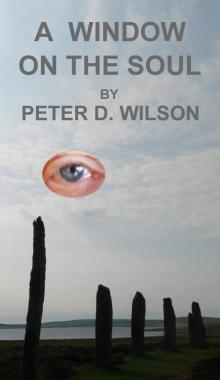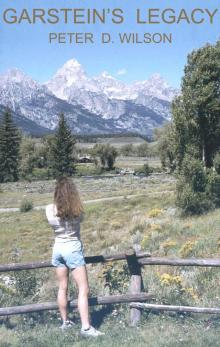- Home
- Peter D Wilson
Pebbles from a Northern Shore Page 2
Pebbles from a Northern Shore Read online
Page 2
THE COMPETITION
I never wanted to run the parish magazine. Indeed, I never imagined doing it until Mike Evans, who had dealt with it for years, was made redundant and thought himself lucky to land a job at the other end of the country. He tackled me one Sunday after the morning service, much to my astonishment. "Why me? It's not my line at all."
"You've done the odd piece from time to time, so I know you're literate. You don't disappear for weeks on end. You know most of the people who put in the regular entries - and what's more, you seem to get on with them fairly easily."
"There are plenty of others who can do that."
"Maybe, but I've been through all the possibilities, and none of them will do. What I've seen of their writing would either shock the old stagers or bore the pants off a marble effigy."
"Does that really matter? Surely the editor's job is to assemble the material, not to write it."
"Don't you believe it. There are always gaps to fill, and you haven't seen half the stuff in anything like the form I get it. And don't tell me you haven't time; you've only just retired, so you can't have picked up the usual load of voluntary jobs yet. If it's any help, I don't move for a couple of months, so I can hold your hand for those two issues."
So I was talked into it; always a soft touch, as my wife complained (she takes after her mother, but we needn't go into that). "I can't do with having you under my feet all day."
"Well, your feet don't have to be in that particular room all day, do they?"
"It's got to be cleaned."
"Once a week is quite enough."
And that piece of heresy left her, for once, speechless. If I got in her way, as she put it later, it was better than having me cause mayhem by driving for Meals on Wheels.
As it turned out, the job wasn't as difficult as I'd feared, and most people seemed fairly happy with the result. They probably glanced through the bits that directly concerned them and skipped the rest. However, after about a year, one of the bright young teenagers happened to comment that it was all a bit tame and predictable, and couldn't we liven it up a bit? Looking back over the past half-dozen issues I had to admit that she had a point.
The question was, what to do about it? She had nothing particular to suggest, but after discussions with various friends someone proposed a short story competition, and it seemed as good an idea as any. So we set it up, with fairly relaxed rules: original work, a thousand words give or take a hundred or so, the winning entry to be published in a special issue of the magazine. The parish funds wouldn't run to much in the way of a prize, but there would be the option of sherry or a box of Belgian chocolates. As there weren't all that many likely entrants, they could put in as many pieces as they wished. I persuaded a literary friend from my student days to judge the entries, and he wasn't likely to know any of the authors, so we didn't need to bother with pseudonyms.
The deadline was getting uncomfortably close with no sign of any response when Bob Jones came along rather tentatively with a couple of pieces. He wasn't sure if they were suitable and wanted my opinion before formally submitting them. I knew something of his daytime work; he produced accurate, clear, concise, strictly grammatical and dry-as-dust technical reports, exactly as required but hardly the stuff of fiction, so on the quiet I was not too hopeful but relieved that he had saved the competition from being a total flop. One of the stories, he explained with a touch of embarrassment, came from a particularly vivid dream, the other from an actual episode in fact.
That week we had visitors with young children who needed constant entertaining, and by their bed-time I was too tired to face Bob's efforts as I imagined them, so a few days passed before I could go through them. They both proved a surprise. The first I read was an uncharacteristically sentimental childhood reminiscence of a white stoat, found apparently starving, that had more or less adopted the family and become something of a pet before disappearing back into the wild.
If that seemed out of character, the second story was far more so; quite fantastic, in fact, but then dreams often are. It started off ordinarily enough describing a simple if puzzling incident. He had been unable one Christmas morning to find his watch, normally left overnight on the dressing table. He lived alone, no one else had been in, and the watch was nowhere else he might inadvertently have put it. As with most habitual actions he had no positive recollection of having taken it off the previous night; he knew the strap was badly worn, and he feared it must have fallen off without his noticing, possibly at the midnight service or on the way back. Nevertheless he searched again and more thoroughly that evening, pulling the table further away from the wall but finding only dust behind it. Then he saw that the watch had reappeared, not against the wall where it might conceivably have fallen but in a clear space where he couldn't possibly have missed it earlier.
He could think of no plausible explanation, and was almost tempted to blame gremlins, especially when the pattern was repeated. Other items disappeared for varying intervals, to be found in places already searched. Sometimes they seemed to work a little better than he remembered. The oddest incident, superficially trivial but disturbing, concerned a Pilot drafting pencil. Or rather, he thought that was the make, but he happened to notice some days later that it was marked "Navigator."
He had never previously doubted his own sanity, but as the incidents piled up, he became more and more worried about them and began to think along those lines. Half-jocularly he commented on one or two of the less bizarre examples to some of his closer friends, and was greatly relieved - at any rate in one sense - to find that they too were having similar experiences and putting them down to absent-mindedness or the mischief of children. Thus reassured, he concocted a theory that some invisible alien intelligence was at work, with no sign of malice (that at least was comforting), but inquisitive enough to borrow artefacts, take them apart to see how they operated, and return them reassembled once it was satisfied. He supposed that to check its conclusions it made copies, sometimes with functionally insignificant errors of detail, and on occasion it made the more serious mistake of returning the copy instead of the original.
Then his secretary was off one day without explanation or any subsequent recollection of the absence. And the single earring that she always wore on her left side was now on the other.
When I next bumped into Bob he was gratified that I quite genuinely considered both his entries eminently suitable, and especially that I thought either of them could stand a good chance of winning, depending on what mood the adjudicator was in. (I saw no need to mention the lack so far of other competitors.) He had some queries about the format required for the final draft, and I assured him that so long as it was neat and legible, nothing about the actual arrangement really mattered. I also commented how lucky he was to have seen a stoat in its winter colouring, as I never had.
"Neither have I."
"So the one in your story was really just the normal brown, was it?"
"Oh, none of that ever happened at all."
"But you said it did!"
"Not that one. I said one of the stories was based on fact. It was the stoat that I dreamed."
Return to Contents

 A Window on the Soul
A Window on the Soul_preview.jpg) Towards Sunset (third edition)
Towards Sunset (third edition) Exit, pursued by a bear
Exit, pursued by a bear Pebbles from a Northern Shore
Pebbles from a Northern Shore Stage 12
Stage 12 Garstein's Legacy
Garstein's Legacy The Liar
The Liar On Wings of Song
On Wings of Song The Jester's Daughter
The Jester's Daughter Skiddlethorpe and other stories
Skiddlethorpe and other stories